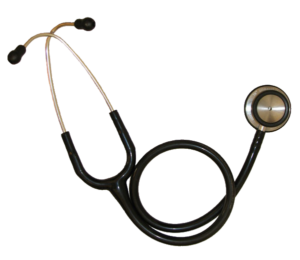 The number of people who have Crohn's disease has been rising steadily over the years. Crohn's disease is a debilitating intestinal bowel disease (IBD) which causes severe abdominal pain, diarrhea, weight loss, and fatigue. A number of studies have focused on gut bacteria in those with Crohn's disease and found dysbiosis (microbial community out of whack), but there is disagreement over the cause of Crohn's and the dysbiosis.
The number of people who have Crohn's disease has been rising steadily over the years. Crohn's disease is a debilitating intestinal bowel disease (IBD) which causes severe abdominal pain, diarrhea, weight loss, and fatigue. A number of studies have focused on gut bacteria in those with Crohn's disease and found dysbiosis (microbial community out of whack), but there is disagreement over the cause of Crohn's and the dysbiosis.
Up to this point no treatments (drugs, surgery, diet, etc.) have had long-term success, and so patients have to take medications throughout life. This is why a small study (10 patients) finding long-term remissions (3 to 23 years) with medicines no longer required is exciting.
According to the Australian researchers success was achieved by having the individuals take a variety of antibiotics over a long period (about 3 years!), and for some also a fecal microbiota transplant (FMT) in the form of a "crap" or "poop" pill (freeze-dried donor fecal microbiota).
The researchers felt that Crohn's disease is caused by an infection, perhaps Mycobacterium avium subsp. paratuberculosis (MAP), and they chose courses of various antibiotics that they thought would work against MAP.
Symptoms of Crohn's disease totally cleared up, intestines (including fistulas) healed, and patients discontinued all medications and treatments. The authors called it a "prolonged remission" in the study. But they did point out that this group was special, and that others treated that same way also achieved remission, but were unable to totally go off all medications.
So we'll see. It needs to be duplicated in more people first.
Excerpts from Medical Xpress: Study: Antibiotic and 'crapsule' therapy eliminate need for further treatment of Crohn's disease
The Centre for Digestive Disease (CDD) headed by Professor Thomas Borody has cured Crohn's disease as reported today by Dr. Gaurav Agrawal in Gut Pathogens.
According to the study published in Gut Pathogens, "prolonged remission has been achieved for three to 23 years with individualized treatments," and reports patients discontinuing all Crohn's therapies.
Professor Borody and his team devised a treatment of specific antibiotics combinations and doses, and/or FMT. In FMT procedures, the gut microbiome bacteria from a healthy donor is transferred to the gut of a patient with a damaged gut ecosystem to repopulate the gut with a healthy and balanced microbiome.
Each year, Crohn's disease results in frequent hospitalizations and surgical procedures, and is life-threatening. The research study was funded by the CDD and involved 10 Australian patients. The team was led by Professor Borody and included Dr. Gaurav Agrawal, Dr. Annabel Clancy and Dr. Roy Huynh.
In the study, the researchers write, "Crohn's disease (CD) is a chronic inflammatory process of the digestive tract characterized by deep ulcerations, skip lesions, transmural inflammation, fistulae and granulomas, with no known cure. It has a negative impact on many aspects of quality of life, including physical, social, psychological, and sexual functioning... Crohn's disease (CD) is rising in incidence and has a high morbidity and increased mortality. Current treatment use immunosuppressives but efficacy is suboptimal, and relapse is common. It has been shown that there is an imbalance present in the gut microbiome (dysbiosis) in CD with a possible infective aetiology—Mycobacterium avium subsp. paratuberculosis (MAP) being the most proposed. Antibacterial therapy and fecal microbiota transplantation (FMT) are emerging treatments which can result in clinical and endoscopic remission if employed correctly. The objective of this study was to report on the treatment and clinical outcomes of patients with CD in prolonged remission. "
